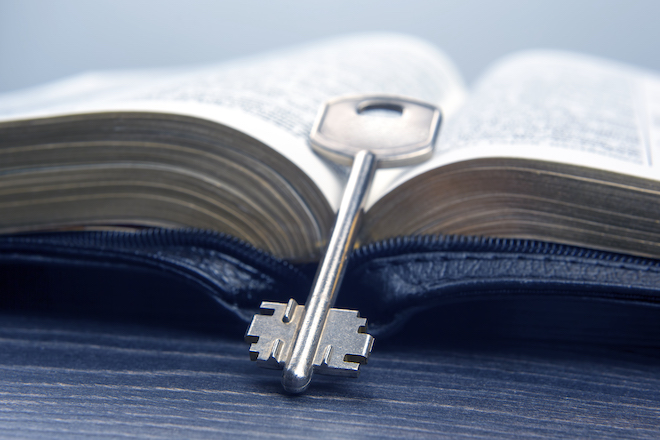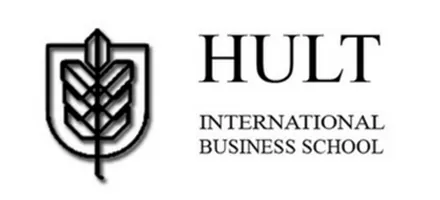
Someone who gains admission to Cornell University has already made a statement about themselves. They are, forevermore, a person who has been admitted to an Ivy League school.
The question is, what does that person look like? The answer, from something of an authority: Admits to Cornell’s business school share certain qualities.
“Collaborative, curious, innovative, and motivated,” says Jinhua Zhao, who became dean of the Dyson School of Applied Economics & Management in 2021. “Dyson students take initiative and demonstrate flexibility, resilience, and empathy.”
Perhaps most importantly in an era when “business as a force for good” is rapidly gaining currency in higher education and commerce alike: “Dyson students,” Zhao says, “apply ideas and create solutions that extend beyond individual gain.”
‘WE APPRECIATE STUDENTS FOR WHO THEY ARE’

Jinhua Zhao became dean of Cornell’s Dyson School of Applied Economics and Management in July 2021. Photo by Annie Zhao
Of 94 undergraduate business schools in the 2022 Poets&Quants ranking, Cornell University’s Dyson School of Applied Economics & Management is the hardest to get into. The school, ranked 16th overall, reports a 5.44% acceptance rate, the only school with a rate lower than 6%. Seventy-five percent of Cornell’s latest class graduated in the top 10% of their high school class, and 20% were National Merit Scholars.
“At Dyson, we recognize that each applicant is much more than simply a standardized test score or a grade on their transcript,” Zhao tells Poets&Quants. “As part of our recent admissions modifications, we moved away from requiring standardized test scores. For the class of 2025, we admitted the largest and most diverse class in our school’s history, which comprised 49% women, 21.7% BHI (black, Hispanic, and indigenous people) and 21.7% of first-generation students.
“With an acceptance rate of 5.4%, we take time to evaluate and appreciate students for who they are and how they will contribute to our diverse community.”
2020 WAS A WINDOW WITH HIGHER ACCEPTANCE RATES
Cornell’s acceptance rate has been on a wild ride. It jumped to 8% in 2020, from 6.4% the previous (pre-pandemic) year, then down again in 2021 to 5.44%. Of the 94 business schools in our 2022 ranking, following the Dyson School in the top five — and the only other schools in our ranking with rates below 10% — are Penn Wharton (6.03%), NYU Stern (7.16%), Washington Olin (8.36%), and USC Marshall (9.94%). The five schools under 10% are more than double the number last year (two) and even higher than the number two years ago, before coronavirus (four).
It’s clear from the data that 2020 was a Covid-19 window in which applicants had a slightly better chance to get accepted to a top business school — and that the window has now (mostly) closed. The number of ranked schools with acceptance rates under 20% dipped to 15 from 18 in 2020, and has bounced back up to 17 last year; under 30% fell from 32 schools in 2019 to 22 the next year, and only slightly grew in 2021, to 24. But the real measure is in the average rate of blocs of schools: In the top 10, the average in the last year before the pandemic was 11.2%. In the depths of the health crisis in 2020, it ballooned to 26.8%. Last year the balloon burst, and the average rate dropped to 12%.
The seesaw was also pronounced across the top 25 schools, with an average of 21% in 2019 dropping by about 10 percentage points the next year, then dropping to 22% in 2021.
Across the entire ranking of 95 schools, the number where the acceptance rate went up in one year was 38; the number where it went down: 56.
SCHOOLS WHERE THE ODDS ARE ON THE APPLICANT'S SIDE
In fact, all of the schools in the top 10 reported lower acceptance rates in 2021 whether you compare them to the previous pandemic year or the last pre-pandemic year. The average drop in the three-year window from 2019 to 2021 (ignoring 2020 as an aberration) was just over 2 percentage points; the average year-over-year from the first year of the pandemic to the second was more than 4.5 points. The biggest drop in both cases was at Georgetown McDonough School of Business, which reported an acceptance rate of 11.8% in 2021, down 4.4 points from 2019 — and 8.2 points from 2020.
But the difference between a 12% school and a 6% school is not really that great — fact is, either (hypothetical) program is very difficult to get into. What about schools where the odds are considerably better? Turns out those ranks are growing. Of the 91 schools in this year's ranking with sufficient data for comparison, the number of schools with acceptance above 70% grew to 27 in 2021, up from 25 in 2020 and 22 in 2019; the number above 80% was flat at 16, but still much more than the nine schools in that range two years ago; and the number above 90% was also flat year-over-year at 5, but more than the one school reporting a rate that high in 2019.
That school: the University of Akron in Ohio, which has had the highest acceptance rate of the P&Q ranking for three straight years — and a growing one each year, too: 97.1% in 2021, up from 95.1% in 2020, up from 90.2% in 2019.
CORNELL: 'OUR BUSINESS IS A BETTER WORLD'
So Cornell Dyson is really hard to get into. Newsflash: It's worth the trouble. The school is fifth in P&Q's ranking for career outcomes, with about 97% of its latest graduating class finding employment, and adjusted annual pay — including signing bonuses — of $84,592. The only four B-schools that do better comp-wise: Wharton, Georgetown McDonough, Carnegie Mellon Tepper, and NYU Stern.
"As one of only two Ivy League universities with an undergraduate business program, Dyson offers applicants a winning ‘trifecta’ — a highly marketable academic major, access to a vast alumni network and access to top employers worldwide," Dyson Dean Jinhua Zhao tells P&Q. He cites other advantages:
- Hands-on preparation for careers; 93% to 97% of Dyson students completed paid internships last year;
- Students receive faculty advisement with 13:1 ratio, as part of a relationship-based learning model; and
- "A dedicated business school career development staff and engaged alumni network."
But more than money, Zhao says, a Cornell Dyson education is about making the world a better place — or as the school motto declares, "Our business is a better world."
"Dyson graduates have strong business skills, a deep understanding of how business decisions impact society, and understand how to use their business skills for the greater good," he says.
See the next pages for the acceptance rates from 2019 to 2021 at more than 90 U.S. business schools in Poets&Quants' annual ranking.
DON'T MISS:
POETS&QUANTS' 2022 BEST UNDERGRADUATE BUSINESS SCHOOLS RANKING
2022 REPORT CARD: HOW ALUMS GRADE THEIR B-SCHOOL EXPERIENCE
THE METHODOLOGY BEHIND P&Q'S 2022 UNDERGRADUATE RANKING
BUSINESS SCHOOLS WITH THE HIGHEST PERCENTAGE OF MINORITY & INTERNATIONAL STUDENTS
IN SEARCH OF GENDER PARITY: BUSINESS SCHOOLS WITH THE HIGHEST PERCENTAGE OF WOMEN










